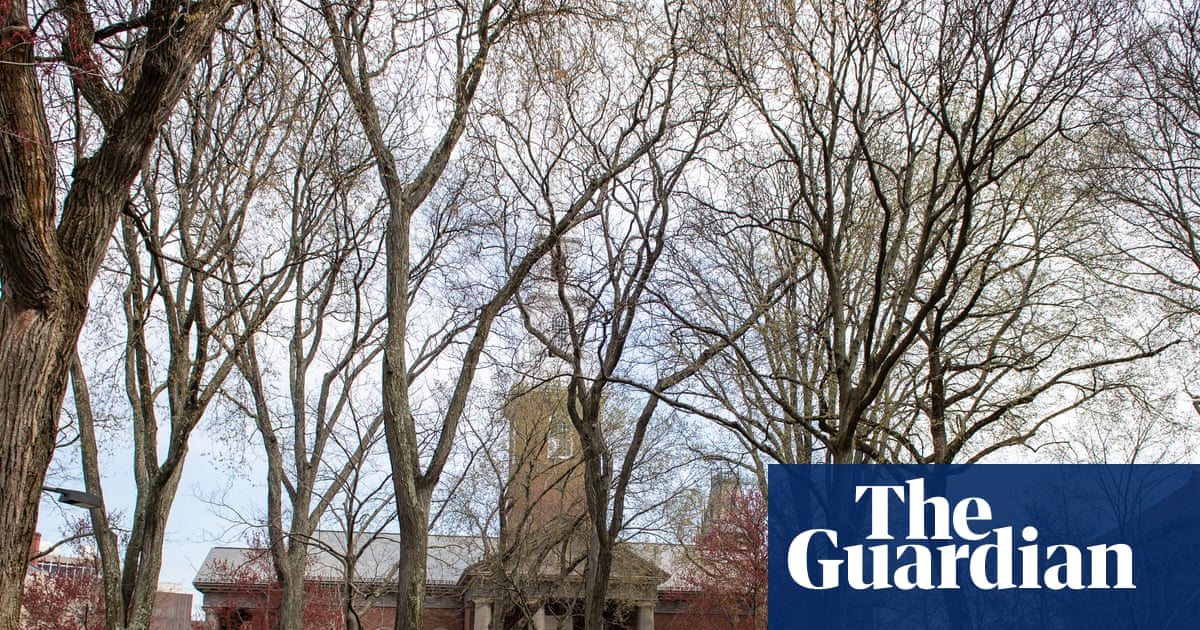An unlikely alliance of farmers, bikers, truckers, a detective and scientists from across the political spectrum are working to pressure the Trump administration and Republican leadership to rein in the use of toxic sewage sludge as fertilizer on the nation’s farmland.
Sludge often teems with Pfas, or “forever chemicals”, which present a health risk to farmers and the public, and have destroyed farms and contaminated water across the country. The issue has touched the groups’ lives in different ways, highlighting its broad risks to health.
“We can all sit down and agree that we and our children shouldn’t be fed literal poison,” said Dana Ames, a Johnson county, Texas, detective who is organizing the group.
In Oklahoma, farmer Saundra Traywick lives in an area where she says toxic sewage sludge is spread as fertilizer. Her family and animals get sick, and the potent stench can be unbearable.
Mike “Lucky” Pruitt, a biker who lives in a dairy- and oil-producing region in Texas, wonders whether Pfas from sludge contributed to the rare brain cancer that killed his six-year-old son; in Johnson county, Texas, Ames took the unprecedented step of opening a criminal investigation, which is ongoing, over sludge that polluted local farms and water.
Billy Randal, a trucker, just learned about the sludge’s dangers, and fears that people hauling the substance are exposed to toxic waste. And in Massachusetts, Kyla Bennett, a former US Environmental Protection Agency scientist and cancer survivor, is part of a lawsuit that could lead to sludge being banned.
Ames said the alliance has a real chance of success because it includes everyone from liberal scientists to people on the far right – they are willing to set aside political differences for the fight.
“The American people are smart – once we figure out what’s occurring, we have a whole lot more in common than we don’t, and this is a basic human right,” said Ames, the Texas detective. “We all deserve safe and clean food and water.”
Ames is organizing rallies that she hopes will draw thousands of people in Austin, Texas, and Washington DC in the coming months, aiming to get Trump’s attention and to pressure the Texas legislature to act. Bringing in the president’s base in deep red Texas is essential, Ames said.
“I speak their language – they’re probably not going to listen to liberal scientists,” Ames said.
Getting Trump’s attention
Sludge is a mix of human and industrial waste, and a byproduct of the wastewater treatment process that regulators allow to be used as fertilizer because it’s rich in nutrients that help plants grow. It also virtually always teems with Pfas and other dangerous chemicals, which contaminate water, crops and livestock, while also sickening farmers and contaminating the nation’s food supply.
Maine became the first state to ban sludge, also called biosolids, after it found Pfas had contaminated crops or water on at least 73 farms where the substance had been spread. The state established a $70m fund to bail out affected farmers.
Pfas are a class of about 15,000 compounds that are dubbed “forever chemicals” because they don’t naturally break down. The chemicals are linked to a range of serious health problems like cancer, liver disease, kidney issues, high cholesterol, birth defects and decreased immunity.

In the Biden administration’s final days, the EPA issued a draft risk assessment for Pfas in sludge that could effectively ban the substance, but Republicans in Congress slipped a rider into the current appropriations bill that would essentially kill the process by withdrawing key funding. The rider was inserted just a few weeks after the EPA met with a sludge industry trade group to hear its grievances about the assessment.
Ames said the EPA “has gone rogue” and she suspects Trump is unaware of the situation. The president has publicly said he wants clean water and food, Ames said, and she suspects he will act if alerted.
“As his voters and his base, we want his ear, and we want to make sure that the president knows what’s going on,” Ames said.
In Massachusetts, Bennett, the scientist, who is now with the Public Employees for Environmental Responsibility (Peer) non-profit, has been frustrated with the Biden and Trump administrations’ policies on sludge, and has sued the EPA under the Clean Water Act to force the agency to regulate the substance. Peer is assisting with letters for Ames’s action, though it is not directly involved with organizing the rallies.
It’s not often that Peer works with folks on the right, but the “strange bedfellows” are a hopeful development, Bennett said.
“This is an issue that should transcend politics because it affects human health and people are humans before they’re Republicans and Democrats,” Bennett said.
‘We’ve got to make a change’
In 2021, doctors diagnosed six-year-old Rylan Pruitt with a rare and aggressive brain cancer. After 30 rounds of radiation treatment and several months of chemotherapy, he died, leaving behind distraught parents looking for answers.
There was no family history of cancer, and his father, Mike “Lucky” Pruitt, began to hear about the risks of Pfas. He turned his attention to the massive dairy and oil operations – both known sources of Pfas and other chemical pollution – in the rural community in which he lives.
Only about 50 other people have developed the type of cancer that killed Rylan – and one of them was a young girl who lived about 11 miles (17km) away, Pruitt said. He said he put together the pieces, like family history, how the cancer was “stupidly and exceedingly rare”, and the research that has connected sludge and Pfas to rare pediatric cancers.
“For me it’s: ‘This is why this is happening, and we’ve got to make a change,’” Pruitt said.

His 15,000-member motorcycle group, the Rylan Strong Network, pressures lawmakers on issues around pediatric cancer and health insurance. He contacted every Texas legislator asking them to support a bill that would require measuring Pfas in sludge. So far, very few have responded, and previous versions of the legislation were killed.
“It’s all about who has the biggest checkbook,” Pruitt said.
In Oklahoma, Traywick’s non-profit, Save Oklahoma Farms and Ranches, has had similar results in pressuring lawmakers. Her kids’ immune disorders, the flies that gnaw her donkeys’ legs raw and the unmeasured effects of suspected Pfas on land and water – none of it has so far convinced state legislators to act.
But, she said, she is more optimistic as “a growing movement of people is waking up to the fact that this is not Democrats versus Republicans or left versus right – we all want our children to have a healthy future,” Traywick said.
In New Jersey, Randal, founder of the national Truckers Movement for Justice, just learned about the sludge from Ames, and worries about what people hauling the waste are exposed to.
The truckers, with thousands of members in the US and Mexico, recently worked with environmental groups to petition the US Department of Transportation to strengthen regulations around hauling fracking waste. The problem with sludge is similar, Randal said. Many drivers have to clean their trucks, there are few protections and they are not made aware of the Pfas and other risks in what they’re hauling.
“We have truck drivers handling this shit and they don’t have a clue about what they’re working around,” Randal said. “Industry laughs all the way to the bank and it’s time for it to stop.” He plans to mobilize truckers to join the rallies.
In Johnson county, Texas, Ames is focused on Goldman Sachs-owned Synagro, which sold local farmers the tainted sludge that polluted local waters and destroyed the land. She said the companies are motivated by “corporate greed”. The farms’ drinking water was found to be contaminated at levels more than 13,000 times higher than the federal health advisory for Pfos, one kind of Pfas compound, and affected meat was as much as 250,000 times above safe levels, a federal lawsuit against Synagro alleges. Synagro denies that the Pfas came from its sludge.
Last year, Ames opened the first-ever criminal investigation into the situation, and Johnson county joined Peer’s Clean Water Act lawsuit. “We’re coming together and we’re saying: ‘No, this isn’t a third-world country, and there’s no reason why in America our food should be poisoned like this,’” Ames said.

 German (DE)
German (DE)  English (US)
English (US)  Spanish (ES)
Spanish (ES)  French (FR)
French (FR)  Hindi (IN)
Hindi (IN)  Italian (IT)
Italian (IT)  Russian (RU)
Russian (RU)  4 hours ago
4 hours ago
























Comments